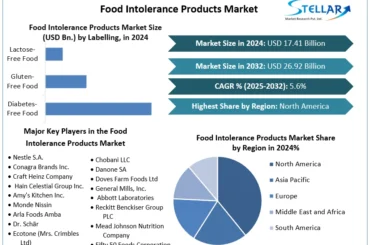Running a growing business while managing customer demands, inventory, and supplier relationships is rarely smooth with legacy systems. Many businesses still use outdated, traditional tools to handle orders, but these create more bottlenecks than benefits. Fortunately, a cloud based order management system (OMS) provides exactly the transformation businesses need.
This article explores why cloud-based solutions outperform traditional systems, their major business benefits, and why Salesforce paired with Tejas Software has become the go-to choice for enterprises that don’t want to just survive but thrive.
What is a cloud based order management system?
A cloud based order management system is software hosted on the cloud that manages the entire order lifecycle—from capturing an order, routing it, updating inventory, tracking shipments, and processing returns, all in one place.
Unlike traditional on-premise systems, it:
- Runs on remote servers instead of local hardware.
- Updates in real-time with automatic upgrades.
- Connects seamlessly with other platforms like CRM, ERP, and eCommerce.
- Provides anytime, anywhere access for employees across locations.
This flexibility is the foundation of why cloud-based OMS solutions are rapidly replacing old infrastructures.
Key Problems with Traditional Order Management
Most businesses switch to the cloud because their old systems cost money and time while delivering weak results. Common pain points include:
- High upfront cost for IT infrastructure and licenses.
- Limited accessibility as traditional systems work only on-premise.
- Scalability challenges—expanding operations often requires expensive upgrades.
- Manual inefficiencies from siloed data entry and poor integration with sales or supplier systems.
- Slower customer experiences due to order delays, mismatched stock, or delayed updates.
If you’re noticing these issues in your current workflow, it’s time to seriously consider moving to a cloud based order management system.
Major Business Benefits of a Cloud OMS
Here are the top reasons businesses across industries are making the switch.
1. Cost Savings and Efficiency
Cloud OMS significantly reduces operational expenses. You pay only for what you use via subscription pricing. No server maintenance, no additional IT team overhead.
2. Real-Time Visibility
Every order, whether from retail, B2B, or eCommerce, syncs in one place. Real-time dashboards help sales, finance, inventory, and supply chain teams stay on the same page.
3. Seamless Supplier Integration
Modern platforms like Salesforce integrate with supplier order management software, helping automate restocks, track delays, and build proactive vendor relationships.
4. Faster Scaling
Cloud systems scale instantly. Adding a new sales channel, entering a new region, or onboarding additional warehouses takes days—not months.
5. Multi-Channel and Omnichannel Excellence
From online orders to in-store pickups, cloud OMS merges every channel into one view. Customers enjoy consistent service while businesses reduce mismanagement.
6. Automation and Error Reduction
Automated workflows in a cloud based order management system cut down manual errors, avoid stock mismatches, and streamline payment and shipping processes.
7. Improved Customer Experience
Satisfied customers mean repeat business. With faster processing, accurate stock visibility, and real-time order tracking, businesses keep customers loyal and engaged.
Why Salesforce for Cloud Order Management?
Salesforce has evolved from being a CRM pioneer into a leader in cloud based order management system. Its competitive advantages include:
- AI-powered predictive analytics for inventory and order demand.
- 360-degree customer visibility integrating CRM with ordering and fulfillment.
- Omnichannel capabilities for eCommerce, retail, B2B, and wholesale.
- Seamless supplier connectivity through integrated supplier order management software.
- Global scaling capacity for enterprises with regional and international operations.
The Tejas Software Advantage with Salesforce
Adopting Salesforce OMS alone doesn’t guarantee success—it must be tailored to your unique processes. That’s where Tejas Software comes in.
With Tejas Software:
- Deployments are customized and faster.
- Integrations (CRM, ERP, eCommerce, and supplier order management systems) are seamless.
- Businesses get consistent IT support without stretching internal teams.
- Optimization continues beyond setup, ensuring better ROI.
- Costs are structured so mid-sized and enterprise businesses can scale affordably.
By aligning Salesforce’s industry-leading tools with Tejas Software’s implementation expertise, your business experiences stability, growth, and resilience right from migration.
Cloud-Based OMS vs Traditional Systems: Side-by-Side
| Feature / Capability | Traditional Order Management System | Cloud-Based OMS (Salesforce + Tejas Software) |
| Initial Cost | High with servers & licenses | Low, subscription pricing |
| Upgrades | Manual, IT-dependent | Automatic, continuous |
| Access | Limited to physical systems only | Global, anytime, device-independent |
| Supplier Management | Mostly manual, fragmented | Integrated with automation |
| Customer Experience | Slower, error-prone | Real-time tracking, higher accuracy |
| Scalability | Costly and time-consuming | Easy and instant |
| Data Visibility | Siloed and inconsistent | Single updated dashboard |
Conclusion
Traditional order management can no longer support the pace of modern business. Customers expect speed, vendors demand transparency, and global expansion requires agility. A cloud based order management system not only solves inefficiencies but fuels growth.
With proven solutions like Salesforce, and the trusted implementation support of Tejas Software, you unlock true business resilience—cutting costs, scaling operations, and delivering unmatched customer satisfaction. Now is the right time to switch and simplify your order management for the future.






